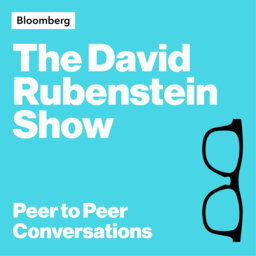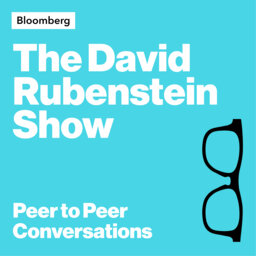Steven Mnuchin
Former US Treasury Secretary Steven Mnuchin said he likes the idea of an across-the-board 10% duty, but markets need clarity and understanding. In an episode of "The David Rubenstein Show: Peer to Peer Conversations," Mnuchin explains that he anticipates lower rates next year and is predicting “about 4% 10-year Treasuries.” Mnuchin who worked under President Trump during his first term describes the debt ceiling as an important mechanism and hopes that the President focuses on Social Security reform in the second half of his term. This interview was recorded March 5 at Bloomberg Invest in New York.
 The David Rubenstein Show
The David Rubenstein Show


